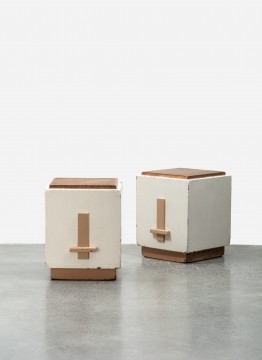Material / technique:
Painted wood
Dimensions:
45 x 35,5 x 35,5 cm
Type of acquisition:
Acquired by the Marie-Jeanne Dauchy Fund
Year of acquisition:
2023
Depository institution:
Design Museum Brussels
